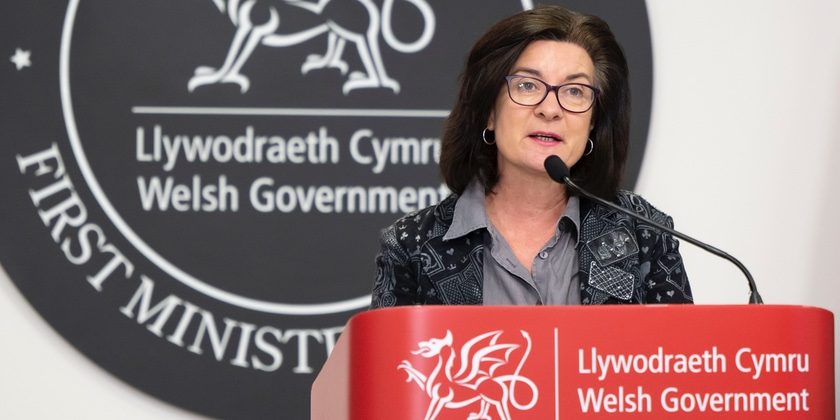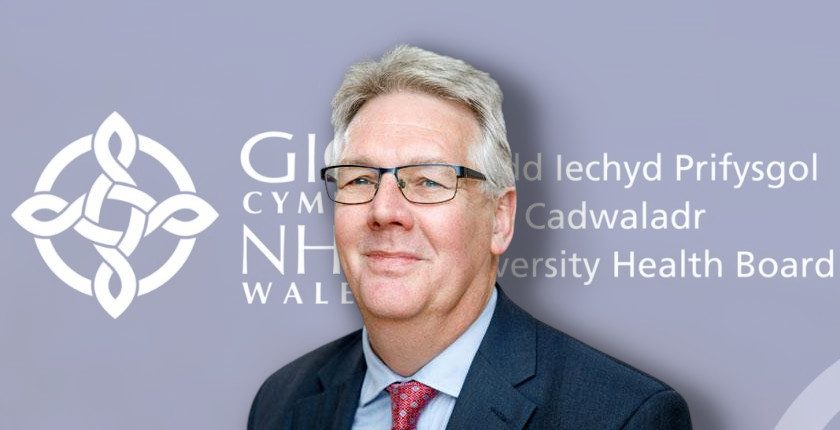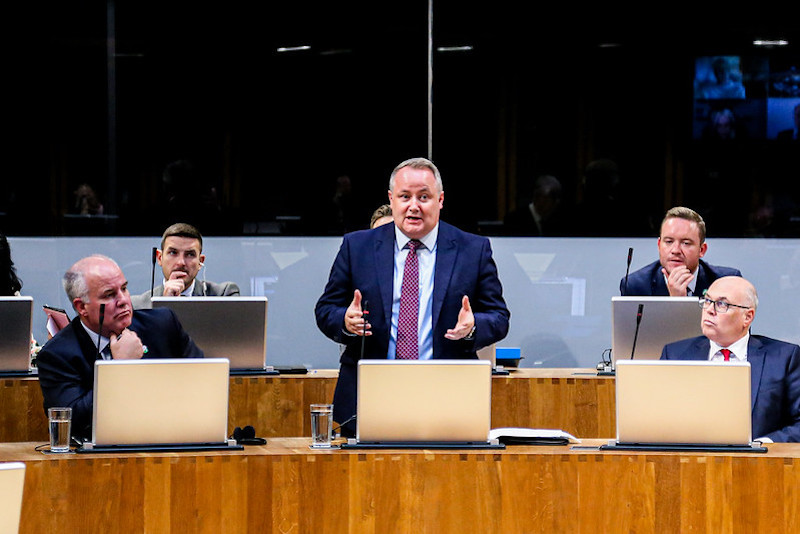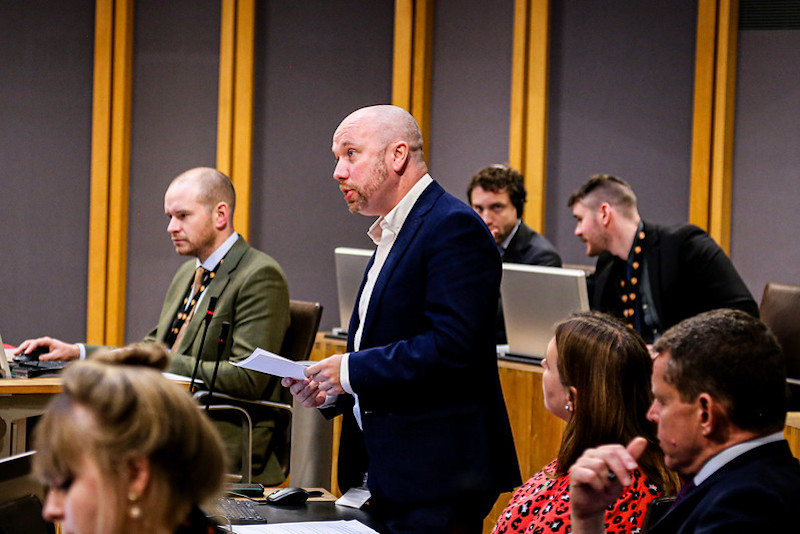Betsi Cadwaladr University Health Board: Progress and challenges after year in special measures

It has been almost 12 months since Betsi Cadwaladr University Health Board was placed back into special measures.
The organisation, which serves a population of around 700,000 people across the region, was moved to the highest level of escalation on February 27 2023 following serious concerns about performance, leadership and culture.
It followed a damning report by the Auditor General for Wales which revealed “deep-rooted issues” with working relationships at the most senior levels within the health board.
The report described a breakdown in relationships within the board’s executive team as “compromising the organisation’s ability to tackle the numerous challenges it faces.”
It led to the resignation of several independent members of the board who said they had “no confidence in the Welsh Government’s grasp of the situation” of health in the region.
A statement released at the time, the independent members said: “It seems that responsibility for organisational culture, service quality and reconfiguration governance, and operational delivery have been placed at our door without recognition of the limitation of our powers as Independent Members.
“In undertaking our legitimate role, we uncovered serious failings in the financial management of the Health Board.
“We commissioned a specialist review by Ernst & Young, which confirmed our concerns, found evidence of serious malpractice, and resulted in a counter fraud investigation.”
The decision place the health board in special measures for the second time in a decade also came of the back of critical reports about the vascular services in north Wales and issues at the Ysbyty Glan Clwyd Emergency Department.
Over the past year a new chair – Dyfed Edwards – has been appointed to the board, alongside Carol Shillabeer who in November was named the permanent chief executive.
Speaking in the Senedd earlier this week Health Minister Eluned Morgan said that whilst it has been a “challenging year for the health board, the difficult decision to put it into special measures was the right one.”
She noted that improvements at the board have been made, including a “65 per cent reduction in the number of people waiting more than three years for their treatment to begin” and the introduction of AI to diagnose breast and prostate cancer.

Health Minister Eluned Morgan
Ms Morgan said: “It’s worth remembering that the health board is the biggest employer in Wales, employing over 20,000 people, serving a population of around 700,000 people, carrying out an average of around 16,000 patient contacts, over 2,000 patient appointments, and around 450 planned procedures every single day.
“I want to acknowledge the excellent work of everyone who works in the health board, and thank them for everything they do to ensure patients are seen and treated safely, compassionately and in a timely manner.
“So, what have we done? Firstly, there has been a focus on rebuilding and stabilising the board. There is now a permanent chair, chief executive and vice chair.
“The final four independent members will be announced very soon, and this will give the organisation the stability and focus it needs in order to improve.
“I was pleased to see that Audit Wales recognised a marked improvement in terms of board stability in its recent follow-up report on board effectiveness, and that the within the board described in its previous report is no longer evident.
“As part of the special measures intervention, a small number of independent advisers were contracted to work with the board, and a number of independent reviews have been commissioned into problem areas.
“I must say that many of the reflections from the advisers, and the reports from the independent reviews, make uncomfortable reading and have exposed some very serious issues that the health board must now address.
“While it has been encouraging to hear about the improvements that Healthcare Inspectorate Wales has observed through its more recent inspections, Members will be aware that His Majesty’s coroners and the ombudsman have highlighted a number of consistent themes, and I hope the health board has now uncovered all of the key issues that need to be addressed and has structures in place to address these issues.
“Audit Wales has also, over the last year, reported on poor financial management and accounting practices.
“But the recent Audit Wales report suggests that the board is responding to the issues identified in their audits of the 2021-22 and 2022-23 accounts, as well as those identified in the Ernst & Young review.
“It’s also worth noting that North Wales Police has decided not to take any further action on the findings of the Ernst & Young report.
“Like all other health boards in Wales, Betsi faces significant financial challenges as a result of inflation and austerity measures. We’re actively monitoring the health board’s response to these challenges.”
She added: “The health board has been in special measures for 12 months, and there is still a lot to do.
“Last year, I set out a series of sustainability conditions for the board, which are still valid and will need to be met before a de-escalation to level 4 can be considered. And, over the next few months, I will publish escalation criteria for each area.
“Without doubt, the health board faces significant challenges, but it is important that we collectively support the board to develop and build a sustainable organisation, capable of delivering the services that the people of north Wales deserve.”

Dyfed Edwards
Despite Ms Morgan’s comments questions remain over the progress made at Betsi Cadwaladr University Health Board.
Speaking in the Senedd Darren Millar MS, who represents Clwyd West, said members need “regular information” to ensure that improvements are being made.
He said: “There was a briefing that was circulated to Members of the Senedd from north Wales yesterday, by the chair and chief executive of the health board, celebrating the fact that they’d eradicated six-year waits in north Wales for treatments.
“So, up until fairly recently, there were people in north Wales still waiting six years for their treatment.
“In that report as well, it told us that there were still many people in north Wales—hundreds, in fact—waiting for over three years for not just treatment, but for their very first out-patient appointment.
“We hear a lot of talk about the two-year focus in this Chamber, but what about the three-year focus that some of my constituents are having to face in north Wales?
“It is truly shocking. And, frankly, we need more regular access to information on this, or else these issues are not going to be dealt with appropriately.
“I’d like to know how many people are waiting five years, four years, three years, two years, one year, and the rest, because that is the sort of transparency that we need to see.”

Darren Millar (Senedd Flickr)
Mabon ap Gwynfor MS, Dwyfor Meirionnydd questioned the Welsh Government’s plan to de-escalate the health board from special measures.
He said: “What is the strategy for improving the situation, and how can the board know that they are moving in the right direction without those criteria for de-escalation?
“I would be grateful to the Minister if she could set out clearly for us today what the criteria are for de-escalation, so that the board can put a strategy in place.
“Furthermore, will the Minister commit to stating who will contribute to the decision to de-escalate and who will make that final decision?
“But I would like to know what the Minister’s vision is for health service provision for north Wales. What does the Minister believe are the challenges and the needs of people in north Wales?”
Ms Morgan said: ” The previous board had struggled to get a grip of the situation. I think that’s a fair comment.
“The fact that the current board has taken a different path, that the atmosphere has changed, that people don’t fear speaking out any longer—. I think that cultural problem that previously existed—.
“There is still a long way to go, but I do think that we are on the right track in that regard.
“I know that compassionate leadership is crucially important, and I know that people are coming in to provide training for the board in that area.
“In terms of what the de-escalation conditions are, we set out the sustainability conditions, and that was referenced in the oral statement that I made previously.
“These include things like setting out strategic vision, integrated performance and quality, culture change, structures and delivery, effective and functioning board, a responsive organisation, a learning and improving organisation, stronger leadership and engagement, programme management, clinical leadership, strengthened clinical services, improved access, outcomes and experience.”

Mabon ap Gwynfor MS (Senedd Flickr)
In a statement a Betsi Cadwaladr University Health Board spokesperson said: “Over the last year, there have been many changes within the health board with support and advice provided by expert independent advisers.
“There has been a change in leadership and approach. We now have a firm foundation to build on, with a new Chief Executive, Chair and Board members in place who are committed to improving our ways of working, our handling of finances and ultimately improving the quality of care provided and the experiences of our patients and their families.
“Of course, there is much more still to be done and as we continue on our improvement journey, we are committed to ensuring excellent healthcare services and long-term positive change for the people of north Wales
“Audit Wales’ recent milestone report showed the health board is moving in the right direction with more stability. There is a clearer direction towards a positive and supportive culture and we know we must focus on rebuilding trust and confidence in the organisation amongst public, staff and partners.
“We still face many challenges, we have services that still need to improve, ongoing financial challenges and more to do to lay the foundations of the organisation we want and need to be.
“We know that people have been frustrated by the amount of time they have had to wait for appointments, care and treatment and over the last year we have been able to make real inroads in reducing some of the waiting times for our longest waiters. We will continue to prioritise reducing waiting times as we move forward.
“Our staff continue to work incredibly hard to provide the services required across primary, community and hospital settings. We want to support them in doing the jobs they are expertly trained to do, well; celebrating their efforts and successes along the way.
“We are committed to working with our staff, our partners and our communities to make even more progress over the year to come and beyond.”
Spotted something? Got a story? Email [email protected]












